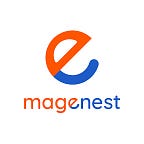Shopify API: A Comprehensive Overview Covering Pricing, Varieties, and Pro Tips
The Shopify API stands as a robust instrument for constructing, personalizing, and expanding the capabilities of an online store. Offering an array of API types, Shopify serves as a versatile platform for businesses, enabling the creation of seamless integrations that result in a remarkable customer experience. Within this comprehensive guide, we embark on a comprehensive exploration of Shopify API, covering fundamental API definitions, the various categories of Shopify APIs, their typical applications, methods of authentication, versioning considerations, pricing structures, and more. Additionally, we delve into a comparative analysis of Shopify API versus APIs from other eCommerce platforms, investigate well-regarded third-party integrations, and unveil invaluable tips to unlock the full potential of Shopify API for your online store.
Understanding Shopify API: A Definition
At its core, an API, or Application Programming Interface, functions as the vital bridge connecting different software applications. It allows them to communicate and exchange data in an organized manner. APIs establish a set of rules and protocols governing data exchange and functionality access. They streamline the development process, empowering developers to create new features and integrations without starting from scratch.
In the realm of eCommerce, APIs play a crucial role by enabling seamless collaboration between different platforms and applications. They facilitate the integration of various services, such as payment gateways, inventory management systems, and shipping providers, into a unified platform, resulting in a seamless shopping experience for customers. Furthermore, APIs empower developers to create customized solutions, ranging from personalized marketing campaigns to advanced analytics, tailored to the unique needs of each online store.
Derived from the API definition, it becomes evident that the Shopify API is a potent tool that empowers developers to create and deploy Shopify Apps designed to enhance the functionality and performance of online stores. It provides software providers with access to data from Shopify-based stores, which can be utilized for various purposes. The API supports both XML and JSON formats and accommodates HTTP requests, including GET, POST, PUT, and DELETE. It encompasses multiple methods, including Category, Customer, Order, Product, and more. The Shopify API is compatible with both REST and GraphQL, offering developers flexibility in building custom solutions for eCommerce businesses.
Here we cover the first two types of Shopify APIs. Learn more about Shopify API in your detailed blog: https://magenest.com/en/shopify-api-reviews/
Exploring the Range of Shopify APIs
Shopify offers a diverse range of APIs that cater to different aspects of eCommerce and app development. These APIs enable developers to create powerful and customizable solutions that can integrate seamlessly with the Shopify platform. By understanding the various types of Shopify APIs, developers can harness their unique functionalities to optimize and enhance online stores, streamline business processes, and improve overall user experience.
The Administrative API
The Administrative API serves as a potent tool for enhancing the user experience of your Shopify store. This versioned API supports both GraphQL and REST, ensuring flexibility for developers. When installing apps, merchants must explicitly grant access to relevant scopes. All requests are subject to rate limits, but the rate-limiting methods differ between GraphQL and REST.
Developers can utilize Shopify-supported libraries to create fast and reliable apps using familiar programming languages and frameworks. All REST Admin API calls require a valid Shopify access token. The choice of endpoints depends on the app’s specific requirements, enabling developers to tailor their solutions to meet diverse store needs.
The Storefront API
The Storefront API empowers store owners with complete creative control over their eCommerce websites. This includes modifying templates and accessing Abandoned Cart Recovery features. Users can effortlessly choose and adjust templates, incorporating various elements for seamless business operations.
The Shopify Storefront API also grants access to built-in eCommerce functionalities like live chat support and a wide array of payment options. The Storefront API exclusively utilizes GraphQL and is unauthenticated, giving users read-only access without the need for a username or password.
